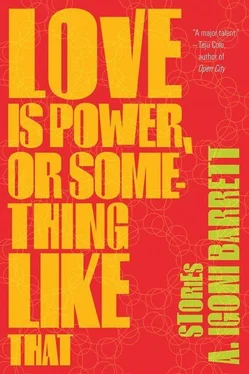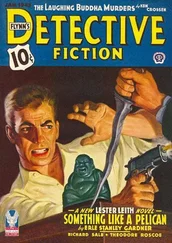Her quirks of temper had become so habitual that when she announced to the family at dinner one day that she had changed her name, nobody said a word. After his younger brother gathered the plates and went into the kitchen to wash up, his mother ahemed to declare the battle open, and looked at his father.
So what do we call you now, madam? his father asked.
My name is Shakira.
The twins — his sixteen-year-old sisters, who attended the same school as her and watched the same MTV videos and wore the same tight, bright, designer-label clothes — exchanged glances. His mother took a long drink of water. The glass clinked against her teeth.
I see, his father said. And your surname — is that still good enough for you?
She fiddled with her phone. From the kitchen came the clatter of plates and the hiss of running water. It was the only sound in the house.
His mother erupted. Answer when you’re spoken to!
She pushed her chair back from the table and stood up. Yes, she said, looking down at his father, ignoring his mother.
Yes what? his mother said.
My father’s name will always be good enough for me. The way she inflected the words, the way she locked eyes with his mother, the expression on her face, made his mother lean forward and grip the edges of the table. Then she turned her back on her aunt, on her three cousins all older than her, on his father who had agreed to take her in when her mother could no longer put up with her, and stalked out.
His father turned to the woman shaking with fury by his side and placed his hand over hers. Ignore her, he said, it’s just adolescence, she will outgrow it.
They followed his father’s advice: they acted as if nothing had happened. But she stuck to her position; she feigned deafness whenever her christened name was called. So they ignored her.
Despite the forbidding of any mention of her adopted name, they found that, with time, they had begun, at first in ignorance, then later with mounting certainty, to blame her rudenesses on her alter ego. The longer she insisted that she was this impostor, this Shakira, the more, in their minds, she became her.
He — who saw her as she would always be: not this teenager with telephonic secrets and trivial obsessions, but the little girl with budding breasts and a bubblegum laugh — called her Shakira. His mother disagreed. His father and sisters, at the behest of his mother, implored him to abandon his opposite stance. He refused.

On the evening of the following Friday he returned from his workplace, the regional headquarters of a global brand management firm, with a batch of tickets to an all-night hip-hop concert, and called his cousin and sisters to come and collect the gifts. His mother waited till the girls had run screaming with excitement out of the sitting room, and then broached the topic.
You know we’re not calling her by that name. Don’t support her in this nonsense.
But I have to call her something, he said.
Call her by her name!
She won’t answer me.
Then let her be nameless.
Isn’t this too much trouble over a nickname?
Look. I know she has always been your favorite cousin and you will support her in everything, but in this matter, listen to me.
But I have to call her something, he said.
Okay. I’ve said my own.
He trod upstairs, shed his clothes in his bedroom, and went into the bathroom. He was in the bathtub when he remembered he had not informed the girls he would attend the concert with them. He called out his sisters’ names, but none of them responded. He had soap in his eyes; the talk with his mother had upset him. So he yelled Shakira! again and again in a voice that rattled the loose lid of the toilet cistern. When she rapped on the bathroom door, he told her to wait downstairs for him when she was ready, and to pass on the message to his sisters.
She was ready, waiting for him, but his sisters were not. They were not going, his mother told him, and neither would “that girl” if she knew what was good for her. Okay, he said, his sisters had made their choice — very well, their loss — but he and Shakira would go. His mother struck back: she demanded the keys to her car, the 2002 Toyota Camry that he had driven and serviced with his money since he started working seven months ago. He tossed the keys on the table, and signaling to his silent, expressionless, jeans and T-shirt dressed cousin to follow, he walked out.
He did not enjoy the concert. He did not expect to. But she did. She pushed through the screaming crowd till she reached the front of the stage, and she snapped innumerable photos with her phone camera, and sent them as messages to his sisters. She danced and sang along until her clothes were soaked with sweat and her voice became a croak. She pestered him for money to buy sweetened alcohol, and sometime in the early hours of the morning, when the concert was winding down, she leapt onstage to plaster his change — note after note, and she shrieked with joy as she did it — on the sweat-slick forehead of her music idol.
By four in the morning she was dull-eyed with fatigue. It was too late to head for home, too early to return to the fight that was waiting for them, he told her. To pass the time he led her by hand on a stroll of the concert grounds, till, in desperation, she suggested a hotel. Anywhere I can sleep, please, she begged, and stamped her feet, tugged at his arm, pressed her cold face into his neck. He laughed, to show her he wasn’t eager. She overpowered him with a hug.
They found a small hotel two streets away from the concert venue. By the time he finished filling the check-in form she had fallen asleep against his back. My sister — attended the concert — home is far, he explained to the receptionist, who yawned and fisted her eyes as she handed him the key and a roll of tissue paper. He carried her up three flights of stairs, her head dangling over one arm and her legs over the other. When he arrived at the room that bore their number he tried to set her down to unlock the door, but she whined her displeasure and clung to his shoulders.
The door creaked open, then swung shut, and the darkness of the room wrapped itself around him with a smell of dust and poultry disinfectant. He felt along the wall for the light switch and snapped it on. Yellow mist flooded his vision. There was a movement — he caught sight of the tall, unshaven, wild-eyed man staring at him from across the room, a lifeless child clutched in his arms like a sack of something stolen. After the shock of recognition he found the courage to laugh at the man in the mirror, who was not him, would never be him.
He looked down at her, this weight in his arms. He walked to the bed and placed her on it. She whimpered, drew up her knees, and crossed her arms over her chest. He slipped off her sandals, pulled the blanket up to her neck, then turned on the air conditioner, switched off the light, and lay down on the carpet at the foot of the bed.
He couldn’t sleep. His imagination grew insect legs and crawled all over his nerves. He scratched his arms, rubbed his face, slapped at his feet. When the bug bites became unbearable on one side, he rolled over.
He was alerted by the rustle of bedclothes, and the bed creaked as she sat up.
What is it?
Nothing, he said. Go back to sleep.
You don’t have to sleep on the floor, there’s enough space here, she said, patting the bed.
He gritted his teeth. His fingers dug into the rug.
You heard me?
I hear you, he said.
He waited until she settled back, then he rose. A chink in the drapes let in a sliver of streetlight, which sliced across the bed. She was curled up on her side, and her head rested on her hands, which were clasped together. He walked to the empty side of the bed and crawled under the blanket, into her fragrance.
Читать дальше


![Сьюзан Кейн - Quiet [The Power of Introverts in a World That Can't Stop Talking]](/books/33084/syuzan-kejn-quiet-the-power-of-introverts-in-a-wo-thumb.webp)










